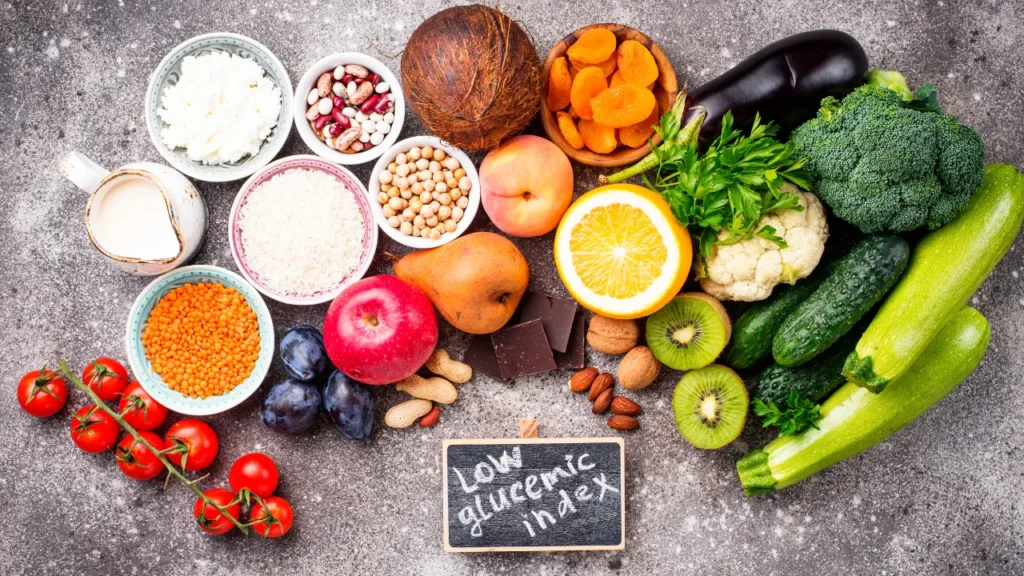Embracing sustainable low glycemic snacks is not just a win for your health, but also for the planet. The Supplant Company offers a satisfying solution that may help keep your blood sugar stable, making their snacks a smart choice for individuals looking to maintain energy levels and manage weight. Their low glycemic options align with eco-friendly principles, allowing you to make a positive impact on the environment while satisfying your taste buds guilt-free.
A doughnut during a coffee break, a protein bar after a workout, or maybe a bowl of cereal in front of the TV at night — call it snacking, noshing, or grazing, now more than ever, getting a bite between meals is a basic part of how we eat. According to the International Food Information Council, snacking is becoming increasingly popular among Americans. Whether it’s because of hunger, stress, boredom, or just the craving for a treat, about a quarter of Americans now say they snack multiple times per day.
Sometimes we reach for healthy snacks, but more often than not, our sweet tooth takes over. Market research in the U.S. shows that our most common snack choices include cookies, ice cream, candy, and cake. In fact, sugar is added to three out of four of the products found on grocery shelves, making it nearly impossible to avoid.
All that sugar adds up. According to the American Heart Association, excessive consumption of sugars has been linked with several metabolic abnormalities and adverse health conditions. The Centers for Disease Control and Prevention also says that added sugars result in weight gain and obesity, type 2 diabetes, and heart disease.
You May Also Like:
5 Great Benefits of Ketosis and the Keto Diet
Nourish Your Kids on the Go With Bon Bee Honey Bars: Gluten-Free Snack Bars With Exceptional Flavor
The GI scale
But it’s not just the extra calories in sugar that harm the body – it’s the way those sugars are absorbed. Sugar is known as a high-GI food according to the glycemic index (GI), a measurement system that ranks foods according to their effect on blood sugar levels.
Foods with a high GI score contain carbohydrates that are rapidly digested, causing blood sugar levels to rapidly rise, triggering the pancreas to release more insulin, which in turn causes blood sugar levels to quickly fall. This can promote cravings and overeating. Repeating this cycle frequently may lead to weight gain and insulin resistance, factors associated with type 2 diabetes and higher cardiovascular risk. And according to The New England Journal of Medicine, a diet consisting primarily of foods high on the glycemic index can increase the risk of heart attacks, strokes, and death.
In contrast, low glycemic snacks are digested and absorbed more slowly, producing a more gradual and relatively low rise in the level of blood glucose and insulin levels. This slow release of glucose into the bloodstream is proven to be much more beneficial for the body. Low glycemic snacks can increase feelings of fullness after eating and reduce hunger between meals. They also fuel the body for sustained energy and increase physical performance by extending endurance.
In addition, low GI diets may result in weight loss, reduced blood sugar levels, and lowered risk of heart disease. They also decrease the risk of common diabetes complications by ~20%. Other benefits of low glycemic snacks include the management of Polycystic Ovarian Syndrome (PCOS), improvement of pregnancy outcomes, reduction in breast cancer risk, reduction in acne, and prevention of age-related macular degeneration (AMD), a leading cause of blindness.
To satisfy the public’s taste for low glycemic snacks that are sweet, many manufacturers have turned to sugar substitutes. Commonly found in “diet” and diabetes-friendly foods, these artificial sweeteners can help some people enjoy sweetness without increasing blood sugar levels.

Sugar substitutes and low glycemic snacks
Still, while sugar substitutes can sweeten a low glycemic snack, they don’t bring the same features to baked goods that sugar does – particularly, providing moisture and leavening, acting as a browning agent, and imparting chewiness and crispness. Also, most artificial sweeteners are not suited to high temperatures, since heat will cause them to break down and become bitter.
More importantly, artificial sweeteners have been the subject of health concerns for decades. Indications remain that sugar alcohols and stevia can cause bloating, gas, and diarrhea. Other studies suggest that fake sugars can also promote food cravings and insulin resistance, a precursor to Type 2 diabetes. In addition, the World Health Organization (WHO) has cautioned that long-term use of NSS (non-sugar sweeteners) may be associated with an increased risk of cardiovascular diseases and mortality in adults.
The forgotten half of the harvest
While it may seem nearly impossible to create low glycemic snacks that are both healthy and sweet, a Cambridge, England-based company produces low-calorie sugar by upcycling agricultural materials that are usually thrown away. Dr. Thomas Simmons, a researcher in plant science, is the founder and CEO of The Supplant Company. He says, “We use agricultural sidestreams as our raw materials, things like stems, stalks, husks, corn cobs, straw, and oat hulls.”
The fibers in these materials, he says, are just long chains of sugars, which are ground down into manageable chunks so that the fiber inside is easily accessible. Through grinding, heating, exposure to fungi enzymes, and, finally, cleaning and drying, what results is a white powder that looks like powdered sugar that, ton-for-ton, can be used across food products to replace cane sugar.
“Supplant™ Sugars from Fiber are healthy,” says Simmons, “because they’re derived from fiber. They still have the health benefits of fiber, they’re still low-calorie like fiber, they’re still low glycemic like fiber, and they’re still prebiotic like fiber.”
That plant fiber also maintains taste and structure in baked goods. Supplant’s baking mixes and bases allow for products made with up to 50% less sugar and up to 25% fewer calories. Sugars from Fiber has also successfully proven its versatility across a variety of food categories including baked goods, chocolate, ice cream, snack bars, breakfast cereals, and more.
To launch Sugars from Fiber, the company partnered with Eight Michelin Star Chef Thomas Keller to launch a line of chocolate and shortbread products. While The Supplant Company is primarily a business supplier, consumers can sample these low glycemic snacks:
Classic Shortbread contains 40% less sugar compared to regular shortbread. Orange Dark Chocolate is offered in premium 70% cocoa chocolate bars infused with orange; they contain 50% less sugar than regular dark chocolate bars. They are available directly online and via Amazon.
In addition to producing healthy foodstuffs, Supplant also works to maintain a more sustainable food system. Research has also shown that sugar production has a devastating effect on the soil, air, and water because of its intensive use of water, heavy usage of toxic agricultural chemicals, significant release of polluted wastewater, and the destruction of natural habitats for plantations. By supplying a sustainable replacement for sugarcane, Supplant contributes to environmentally friendly food production.
The newest ingredient by The Supplant Company is Supplant™ Grain & Stalk Flour, which is made using both parts of wheat – the grain typically used in flour production, and the stalk, which is not. By replacing refined starch or white flour in the food system, Supplant aims to dramatically increase global output from wheat plants, making global food systems more abundant.
“On average, two-thirds of everything that’s grown on farms doesn’t enter our food system,” Simmons says, “These materials are largely underutilized and often completely wasted.”
“We’re making sustainable use of this hugely abundant resource, the most abundant renewable natural resource in the farming system. No one else does that right now.”

Further reading:
Glycemic Index Foundation: Low GI Explained
Mayo Clinic: Low-glycemic index diet: What’s behind the claims?
World Health Organization: WHO advises not to use non-sugar sweeteners for weight control
Important Note: The information contained in this article is for general informational purposes only, and should not be construed as health or medical advice, nor is it intended to diagnose, prevent, treat, or cure any disease or health condition. Before embarking on any diet, fitness regimen, or program of nutritional supplementation, it is advisable to consult your healthcare professional in order to determine its safety and probable efficacy in terms of your individual state of health.
Regarding Nutritional Supplements Or Other Non-Prescription Health Products: If any nutritional supplements or other non-prescription health products are mentioned in the foregoing article, any claims or statements made about them have not been evaluated by the U.S. Food and Drug Administration, and such nutritional supplements or other health products are not intended to diagnose, treat, cure, or prevent any disease.


